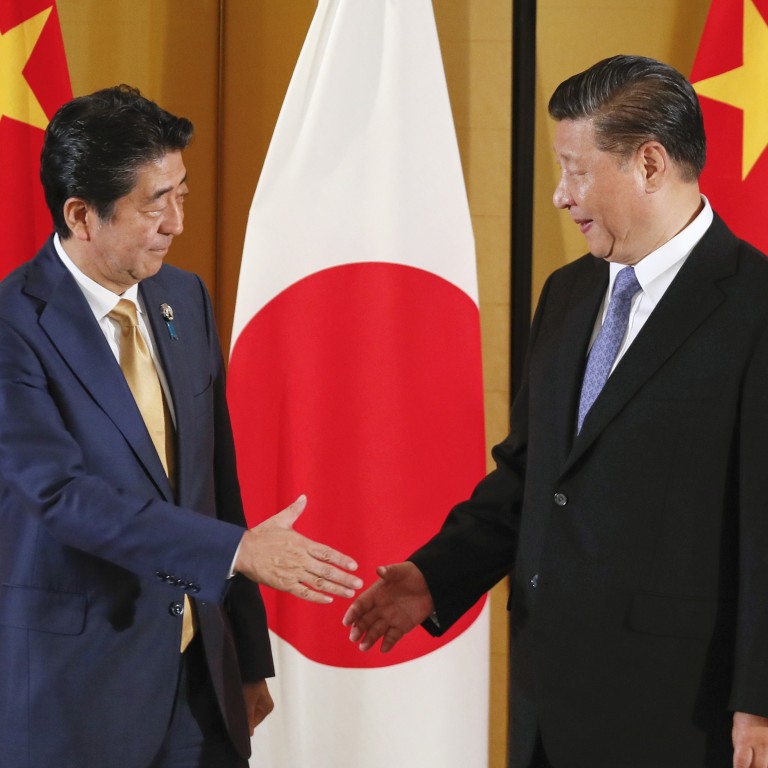
Why Indonesia’s the winner of the next China-Japan economic battle
- Jakarta is in the middle of a tug of war between Beijing and Tokyo for economic influence
- As recent investment figures make clear, that’s an enviable place to be
According to the proverb, when elephants fight it is the grass that suffers. Well, so much for that proverb. The case of Indonesia shows that being the rope in a tug of war between two economic giants – in its case China and Japan – can be a very lucrative position indeed.
First, consider the seemingly ever closer friendship between Jakarta and Beijing. Whether it is in education and media or investment and infrastructure, there’s little doubt that ties are at something of a high point.
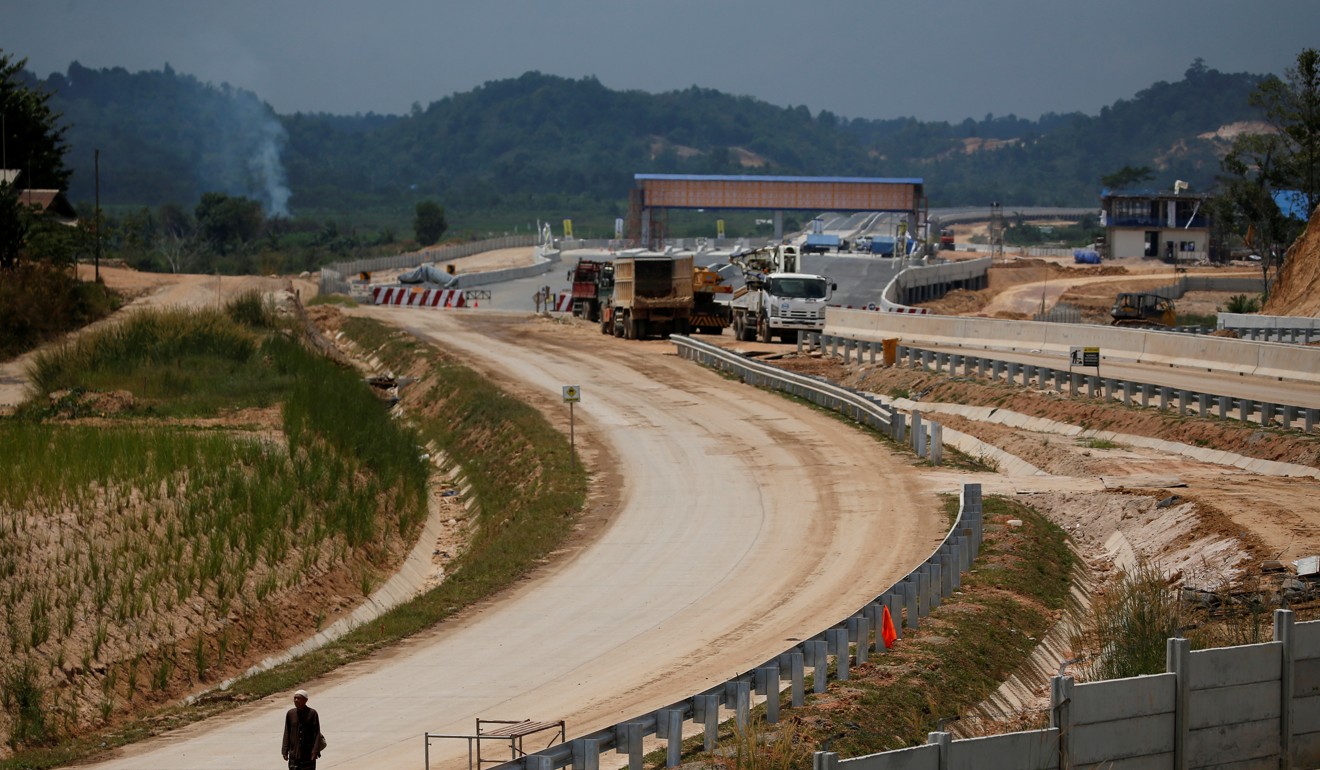
Second, consider the strengthening relationship between Jakarta and Tokyo. Japanese investment in Indonesia, which experienced a downturn following the 1997 Asian Financial Crisis, has grown to the point that Japan is now one of most important investors in Indonesia.
Where China fits in Jokowi’s plan for Indonesia’s US$33 billion new capital city
In 2018, Japan invested US$4.9 billion in Indonesia, more than any other country after Singapore. Indonesia is also one of Japan’s biggest trading partners in the export-import sector.
The trade balance between the two stood at US$904 million in September 2019, according to the latest report from Hong Kong-based CEIC.
That these two relationships are blossoming at exactly the same time is no coincidence. Rather, it is evidence that the two Asian giants – the world’s second and third largest economies and long-term rivals – increasingly view the Southeast Asian nation as a battleground to be won or lost.
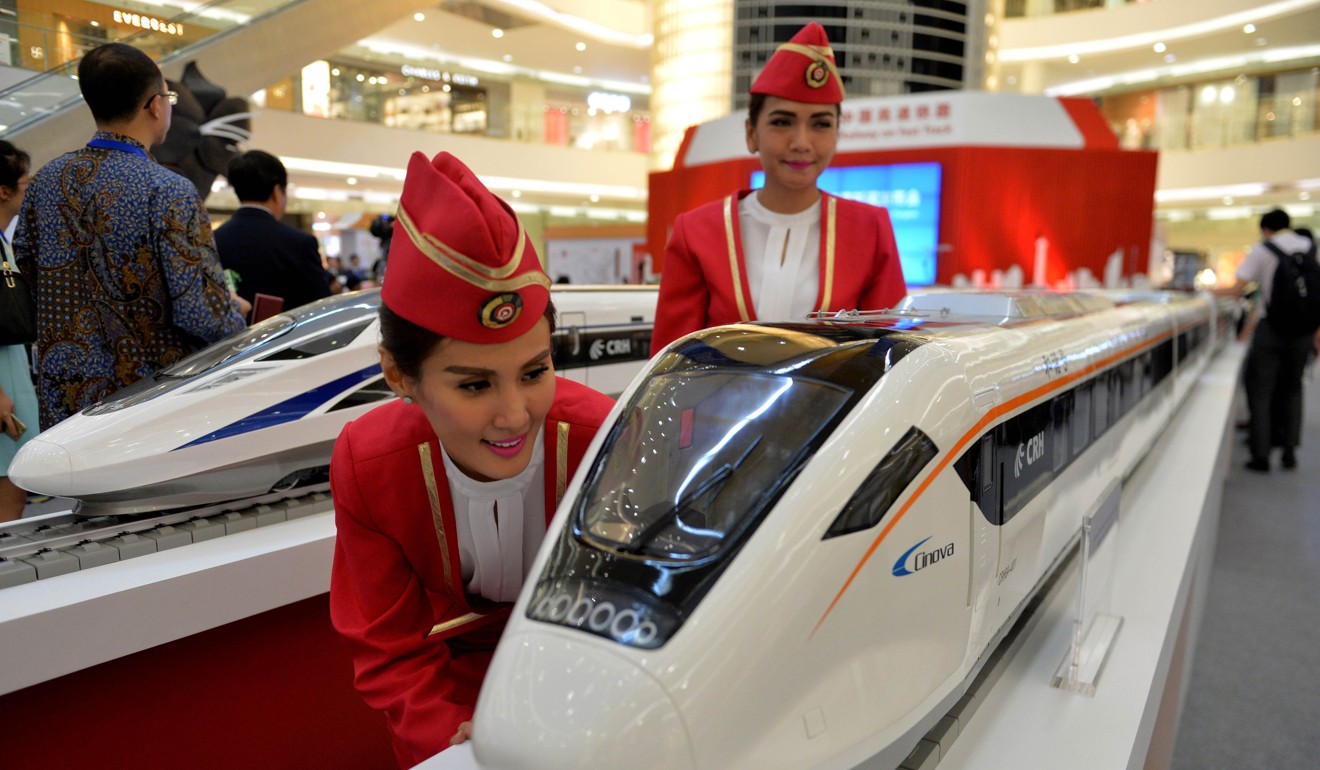
RAILWAY RIVALRY
Recent bidding wars for two of Indonesia’s landmark rail projects – the Bandung to Jakarta and the Jakarta to Surabaya links – illustrate how the country has come to be seen as a prize in a tug of war between the two countries.
The bidding process for the US$6 billion, 142km high-speed rail link connecting Jakarta to Bandung in West Java began in 2015. It was initiated by the Indonesian government and opened up to foreign investors.
The Japan International Cooperation Agency (JICA) had been confident of winning the contract, given that a soft loan from JICA had just months earlier been pivotal to the opening of Jakarta’s long-awaited Mass Rapid Transit subway system. So it was no surprise when its subsequent loss of the contract to KCIC – a consortium of Indonesian state-owned companies and China Railway Construction Corporation – led to a considerable loss of face on Japan’s behalf.
Indonesia still wants Chinese investments, but Jokowi is also wooing Middle East money
Jakarta then tried to smooth things over by explaining its decision, saying the Chinese bid had not required a loan guarantee from the Indonesian government as had the Japanese one.
Nevertheless, Japan had carried out much work on its bid and it clearly felt betrayed by Indonesia’s decision, with Japan’s then chief cabinet secretary Yoshihide Suga making clear his disappointment to the head of the National Development Planning Agency (Bappenas) Sofyan Djalil. Suga reportedly told Djalil he doubted China’s ability to carry out the project.
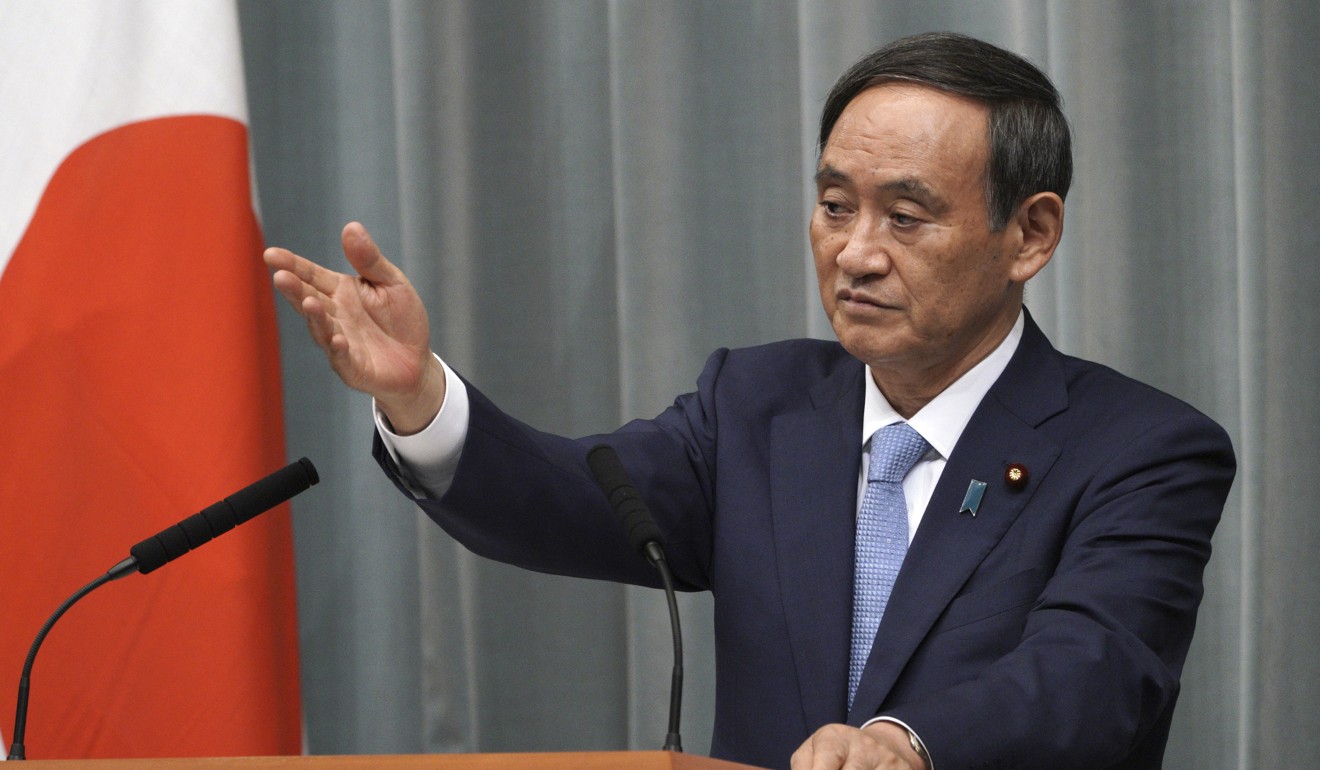
Hoping to placate Japan, Indonesia’s response was to offer it the 720km semi-high-speed rail link between Jakarta and Surabaya, the second-biggest city in east Java. Not only that, it offered a deal that restricted any involvement by actors other than Indonesian and Japan – a knockout blow to a rival Chinese bid for the project.
But what would be hard for any dispassionate observer to deny is that in their bids for the two projects, China and Japan often appeared as interested in beating each other as they did in partnering Indonesia.
INVESTMENT WELCOME
Another area where the Japan-China rivalry can be seen clearly is the world of investment.
According to Indonesia’s Investment Coordinating Board, Japan pumped US$2.4 billion into Indonesia throughout 2018, making it the country’s second biggest investor. That put it ahead of China, in third place with US$2.4 billion of investments in 2018. Singapore, Indonesia’s largest investor during the 2018 period, contributed US$9.2 billion, or 39.4 per cent of the total foreign investment in Indonesia.
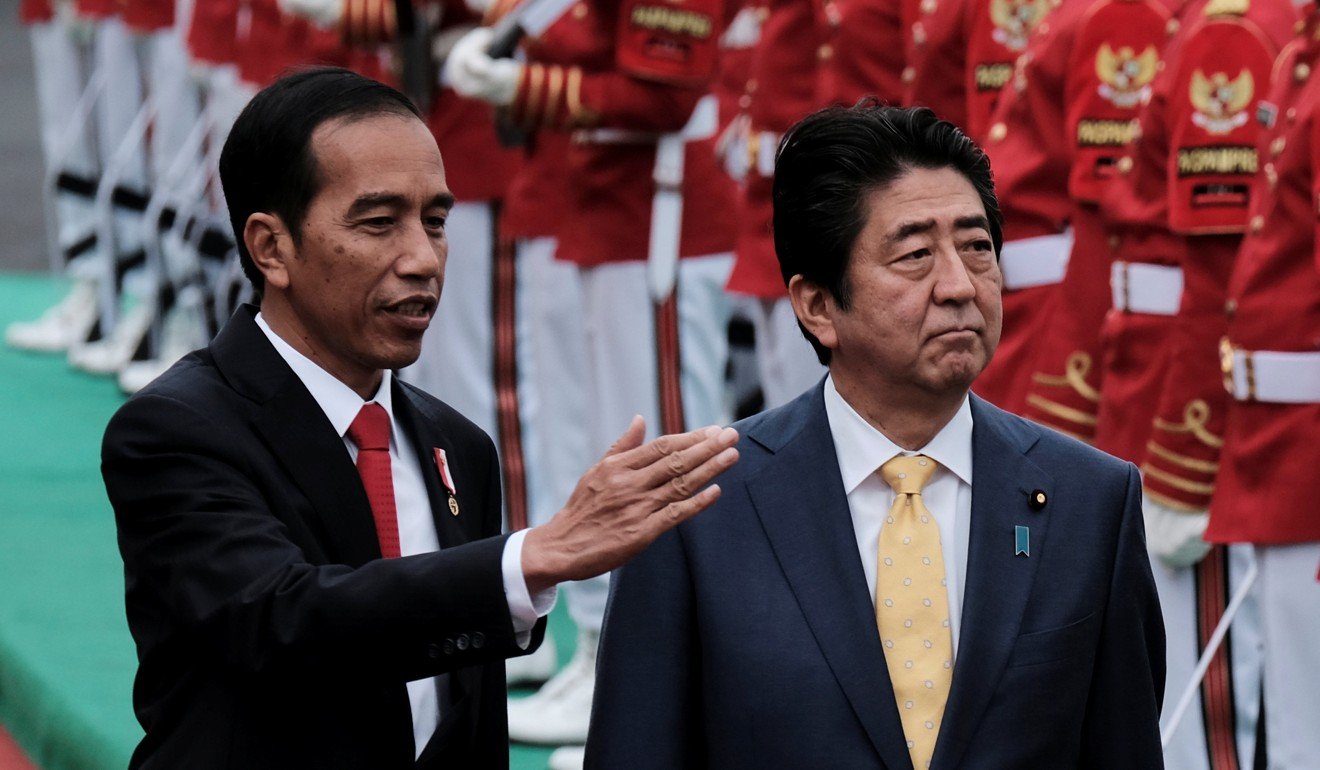
When Abe declared that as part of this policy Japan would increase and expand its ties with Indonesia, his words were met with a positive response from Jakarta. Over the next three years, the value of Japanese investments in Indonesia expanded from the automotive industry to sectors such as infrastructure and railway constructions. Indonesian Industry Minister Airlangga Hartanto said during a visit to Tokyo in May that he was optimistic that Japanese investments would increase in the coming years.
What’s driving Indonesian paranoia over Chinese workers?
At the same time, China is likely to ramp up its own cooperation with Indonesia under the auspices of its belt and road plan. Many Chinese projects in the country remain unrealised. Several projects are still in the pipeline, including the Kuala Tanjung project in North Sumatra, the Sei Mangkei industrial estate projects, and Phase II of the Kualanamu International Airport.
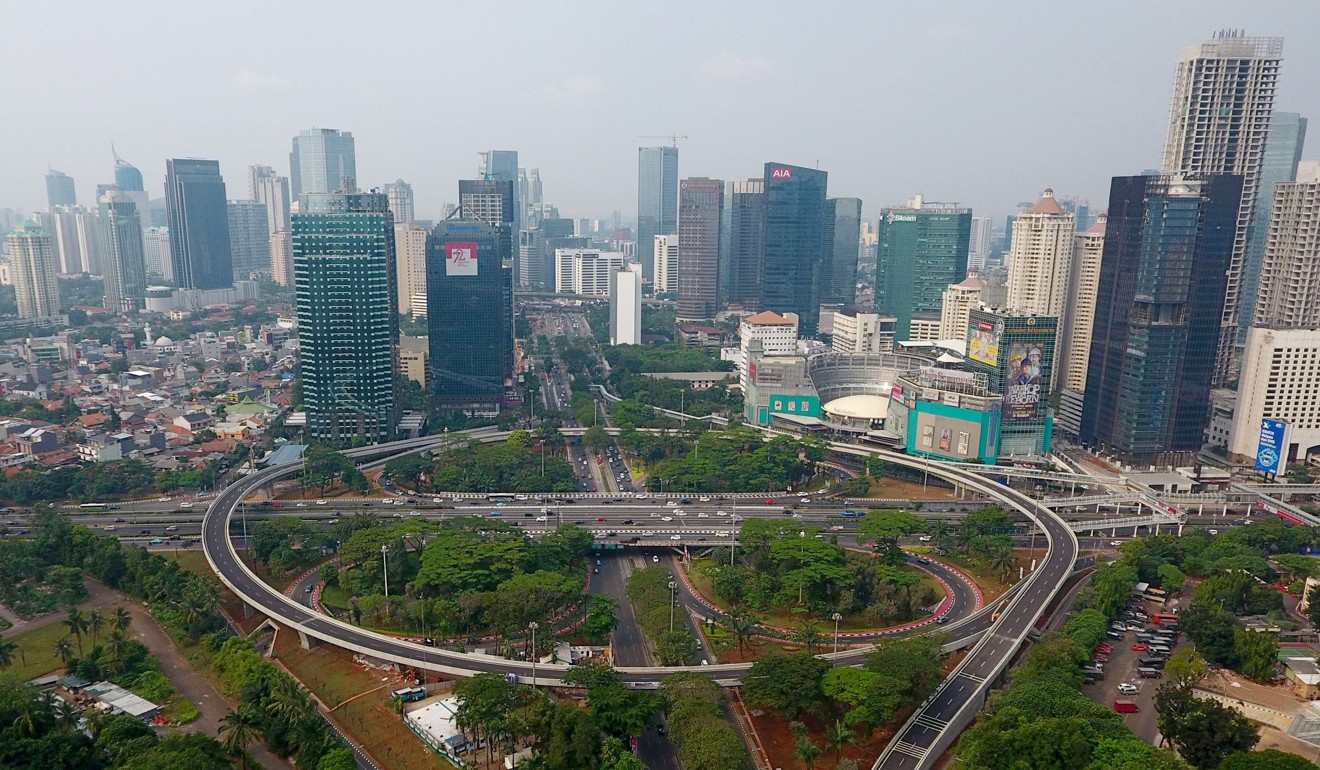
On April 27, 2019, Indonesia signed 23 belt and road cooperation agreements with China.
All this suggests that, if anything, the Japan-China competition for Indonesia will only grow in the coming years.
HERE’S WHO WINS
The stakes for Japan and China are clear: McKinsey and PwC predict that, by 2030, Indonesia will have more economic growth potential than any other developing country. That makes it a prize worth fighting for.
But Indonesia also has much to gain. Its economy has slowed considerably since 2010 and the World Bank has warned that its growth rate could slide below five per cent in 2020.
Having two of the world’s biggest economies vying to influence it with ever more investment is exactly the position it would want to be in. Combined total investment from the two countries grew from US$886 million in 2010, to US$7.3 billion in 2018.
Jakarta now finds itself able to play both sides. While Beijing’s belt and road fits well with its key economic strategies, Tokyo’s desire to act as a balance to that initiative and maintain its primacy in the Asian region, also plays into Jakarta’s hands.
It seems that when it comes to economic battlegrounds, being stuck in the middle of two warring giants isn’t as unpleasant as it sounds.
Muhammad Zulfikar Rakhmat is a lecturer at the Islamic University of Indonesia and research associate at the Institute for Development of Economics and Finance in Jakarta

